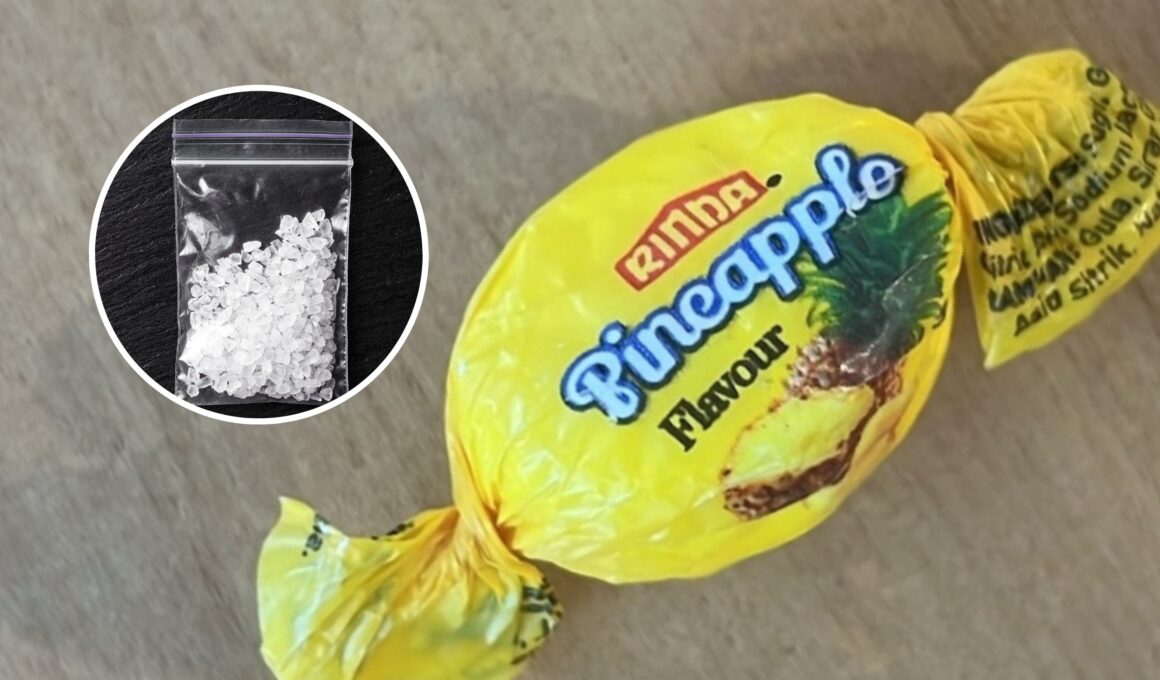Candy donated to a food bank in New Zealand contained a “potentially lethal dose” of methamphetamine.
A patron who received the pineapple-flavored candy in a food parcel from the Auckland City Mission (Te Tāpui Atawhai) in New Zealand reported them being “funny tasting.”
The NZ Drug Foundation tested the candy remaining at the food bank and discovered that a single piece of the candy contained about 3g of methamphetamine.
“Tests confirmed that the lollies tested contained potentially lethal levels of methamphetamine,” Auckland City Mission said in a statement.
Methamphetamine, known commonly as meth, is a potent and highly addictive central nervous system stimulant. Ingesting the drug produces an immediate, intense “rush” or euphoria.
Symptoms of a meth overdose include chest pain, confusion, psychosis, increased heart rate, body temperature and blood pressure, and loss of consciousness. If the dose is high enough, this can lead to heart attack, stroke, organ failure and even death.
Nearly 33,000 deaths in the United States in 2021 involved meth, according to the American Addiction Centers.
“A common dose to swallow is between 10-25mg, so this contaminated lolly contained up to 300 doses,” Drug Foundation Executive Director Sarah Helm said in a statement. “Swallowing that much methamphetamine is extremely dangerous and could result in death.”
The candy was donated to the food bank in a sealed package, with each piece wrapped in the usual branded packaging.
“The Mission only accepts commercially manufactured food for inclusion in food parcels and the [candy] appeared as such when donated,” the food bank said in the statement. “The Rinda brand pineapple [candy] were in a sealed retail sized package that were then distributed.”
The food bank and Drug Foundation fear that others may have received the contaminated candy in their food parcels or possibly from elsewhere and have warned locals not to eat any.
“We don’t know how widespread these contaminated lollies are, so we recommend not eating any Rinda brand pineapple lollies if you have them,” Helm said. “If you or someone you know has eaten one and feels unwell, call [emergency services] immediately.”
“I am absolutely devastated at this turn of events,” Helen Robinson, Auckland City Mission CEO, said in the statement.
The person who donated these candies is currently unknown, and a police investigation is underway.
“Our initial enquiries have established that the food items concerned – Rinda brand pineapple lollies – may have been distributed to food parcel recipients over the last several weeks,” New Zealand Police said in a statement. “An investigation is under way and Police are treating the matter as a priority given the risk to the public.
“Police are urging anyone who has received the Rinda brand pineapple lollies in a food parcel to not consume the lollies and to secure them out of reach of anyone in the household.”
In the U.S., methamphetamine is classified as a Schedule II controlled substance, indicating a high potential for abuse. Meth is highly addictive, and users can quickly develop a dependency. Long-term use of meth can lead to delusions, paranoia, mood swings, and insomnia, as well as severe weight loss, sores, rotten teeth and infections.
Do you have a tip on a science story that Newsweek should be covering? Do you have a question about meth? Let us know via science@newsweek.com.








